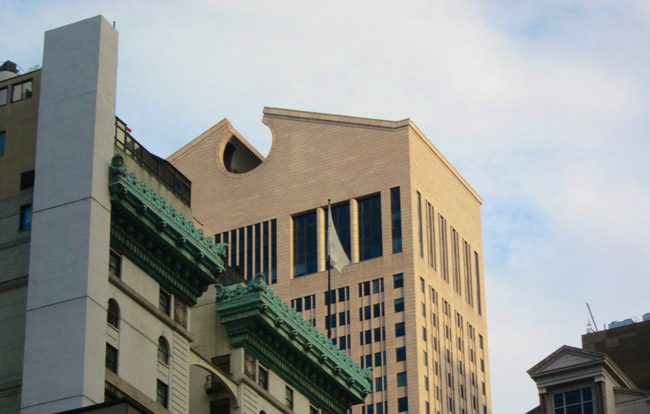
By Sam Pizzigati
Back in 1999, no executive personified the soaring pay packages of America’s CEOs more than Jack Welch at General Electric. Welch took home $75 million that year.
Welch credited that exorbitant salary not to his own genius, but to the genius of the free market.
“Is my salary too high?” mused Welch. “Somebody else will have to decide that, but this is a competitive marketplace.”
Translation: “I deserve every penny. The market says so.”
Top executives today are doing even better. In 1999, the Economic Policy Institute reports, CEOs at the nation’s 350 biggest corporations pocketed 248 times the pay of average workers in their industries. Top execs last year averaged 312 times more.
Why? Like Welch a generation ago, today’s CEOs point to the market.
As the University of Chicago’s Steven Kaplan puts it, “The market for talent puts pressure on boards to reward their top people at competitive pay levels in order to both attract and retain them.”
In the world of CEO cheerleaders like Kaplan, corporate boards simply pay their execs what the impartial, unbiased market — supply and demand — says they deserve. If they don’t, they risk losing talent.
But do corporations really face a shortage of qualified CEOs?
In fact, Corporate America has never had more talent to choose from to run their multi-billion-dollar companies. America’s graduate schools of business have been graduating, year after year, thousands of rigorously trained executives.
 The Tuck School of Business at Dartmouth boasts an alumni network over 10,000 strong. MBAs in the equally prestigious Harvard Business School alumni network total over 46,000. Several hundred thousand more execs have been trained at America’s other top-notch business schools.
The Tuck School of Business at Dartmouth boasts an alumni network over 10,000 strong. MBAs in the equally prestigious Harvard Business School alumni network total over 46,000. Several hundred thousand more execs have been trained at America’s other top-notch business schools.
Let’s assume, conservatively, that only 1 percent of the alumni from the “best” business schools have enough skills and experience to run a big-time corporation. Even that would give Fortune 500 companies looking for a new CEO several thousand qualified candidates.
That’s not even counting the grads from business schools abroad. INSEAD, perhaps the most prominent of these international schools, now has over 56,000 active alumni. In our celebrated “globalized” economy, executives from elsewhere in the world constitute a huge new pool of talent for American corporations.
By classic market logic, any competition between highly paid American executives and equally qualified but more modestly paid international executives ought to end up lowering, not raising, the higher pay rates in the United States. Yet American executives take home over triple the pay of execs in America’s peer nations.
In short, we have a situation that the “market” doesn’t explain. In the executive talent marketplace, American corporations face plenty, not scarcity — yet the going rate for American executives keeps rising.
Simply put, markets don’t set executive pay.
“CEOs who cheerlead for market forces wouldn’t think of having them actually applied to their own pay packages,” as commentator Matthew Miller has noted in the Los Angeles Times. “The reality is that CEO pay is set through a clubby, rigged system in which CEOs, their buddies on board compensation committees, and a small cadre of lawyers and ‘compensation consultants’ are in cahoots to keep the millions coming.”
If CEOs earned less, the Economic Policy Institute study concludes, we would see “no adverse impact on output or employment.” Instead, we’d see higher rewards for workers, since the huge paydays that go to CEOs today reflect “income that otherwise would have accrued to others.”
Back in 1965, the study notes, America’s top execs only pulled down 20 times more pay than the nation’s average workers, as opposed to over 300 times today. If we want an economy where all of us can thrive, not just CEOs, we’d do well to drive that number back down.
![]()
 Veteran labor journalist and Institute for Policy Studies associate fellow Sam Pizzigati edits Too Much, a newsletter on excess and inequality. He also writes columns for OtherWords, the Institute’s national non-profit editorial service. His latest book is The Rich Don’t Always Win. Pizzigati lives in Kensington, Maryland.
Veteran labor journalist and Institute for Policy Studies associate fellow Sam Pizzigati edits Too Much, a newsletter on excess and inequality. He also writes columns for OtherWords, the Institute’s national non-profit editorial service. His latest book is The Rich Don’t Always Win. Pizzigati lives in Kensington, Maryland.






























Agkistrodon says
Socialist BS.
Anonymous says
I want a raise!!!
Richard says
Another jealous liberal wanting to separate the wealth from the wealthy and put it into their pockets. Get a real job!
Stranger in a strange land says
The so-called “corporate raiders” of the 1980’s that were portrayed as pirates tearing apart great companies (see “Wall Street” and “Pretty Woman”) were who controlled corporate management from taking too much from a company’s income. The protective walls that were put in place to “protect” companies from take-overs actually protect management. If poison pills and other measures put in place in the 80’s and 90’s were removed then CEOs who take rediculous compensation packages would actually be at risk of having their golden goose killed and eaten by a corporate raider, squeezing the excess compensation out for his companies expenses, making the company more profitable and competitive. It is a new owner or majority stock holder that will bring in a lower compensated foreign CEO and management team. Doing this would make US companies more competitive rather than Trade wars and tariffs. That is what true capitalism would do. This isn’t liberal, socialist BS. It’s getting rid of laws that protect the wealthy management types that don’t deserve it. The Bill Gates, Warren Buffetts, Mark Zuckerbergs, and Jeff Bezos’ of the world deserve every dime because they created it. The custodian CEOs that head faceless huge corporations of old, not so much. It is protectionist laws that cause this disparity, not what “the market will bear”.
snapperhead says
Predictable responses from our friends on the right. The same “free market” people cheer for tariffs on imported goods because America can’t compete on so many products.
“We may congratulate ourselves that this cruel war is nearing its end. It has cost a vast amount of treasure and blood … It has indeed been a trying hour for the Republic; but I see in the near future a crisis approaching that unnerves me and causes me to tremble for the safety of my country. As a result of war, corporations have been enthroned and an era of corruption in high places will follow, and the money power of the country will endeavor to prolong its reign by working upon the prejudices of the people until all wealth is aggregated in a few hands, and the Republic is destroyed. I feel at this moment more anxiety for the safety of my country than ever before, even in the midst of war. God grant that my suspicions may prove groundless.”- Socialist liberal- Abraham Lincoln.
“I hope that we shall crush in its birth the aristocracy of our monied corporations, which dare already to challenge our government to a trial of strength, and bid defiance to the laws of our country.” Socialist liberal- Thomas Jefferson